Top 10 Form Builders with Conditional Logic for Enhanced User Experience
Helpful Summary
- Overview: We review ten powerful conditional logic form builders based on features, pricing, and more.
- Why you should listen to us: We have first-hand experience with tons of form-building tools, including our own conditional logic form builder.
- Why it matters: Conditional logic enhances user experience (UX), increases conversion rates, and results in higher-quality leads by making forms more relevant and less frustrating.
- Action points: Our recommendations are Growform, WP Forms, Formidable Forms, Jotform, Zoho Forms, and Gravity Forms.
- Further research: Look through the Growform blog to find other valuable resources on form building and lead generation.
Need Help Finding The Best Form Builders With Conditional Logic?
Lead gen forms are very common. Ruler Analytics reports that 84% of marketers use forms to generate leads. But despite this extensive use, lots of marketers struggle with low form completion rates, low-quality data, and poor lead qualification.
A potential solution? Conditional logic forms.
By using a form builder with conditional logic, you can maximize your forms’ impact while minimizing user friction. And in this Growform guide, we’re sharing our list of the top form builders with conditional logic.
Why Listen To Us?
At Growform, we are passionate about helping businesses generate high-quality leads. Our conversion-focused multistep forms are designed to be simple enough for anyone to use while still offering the additional features that make them such powerful lead-generation tools.
We’ve tested tons of form builders over the years—many with conditional logic. So, we thought we’d share a rundown of a few of our favorite tools.
What Are Conditional Logic Form Builders?
Conditional logic refers to “if this, then that” functionality. In a form builder, conditional logic lets you show or hide certain form fields based on user input.
Let’s look at an example.
Say you’re creating a lead form that needs to target two separate ideal customer profiles (ICPs)—small businesses and huge enterprises. The questions you need to ask these ICPs are completely different, and forcing both to answer all of them is a recipe for low conversions.
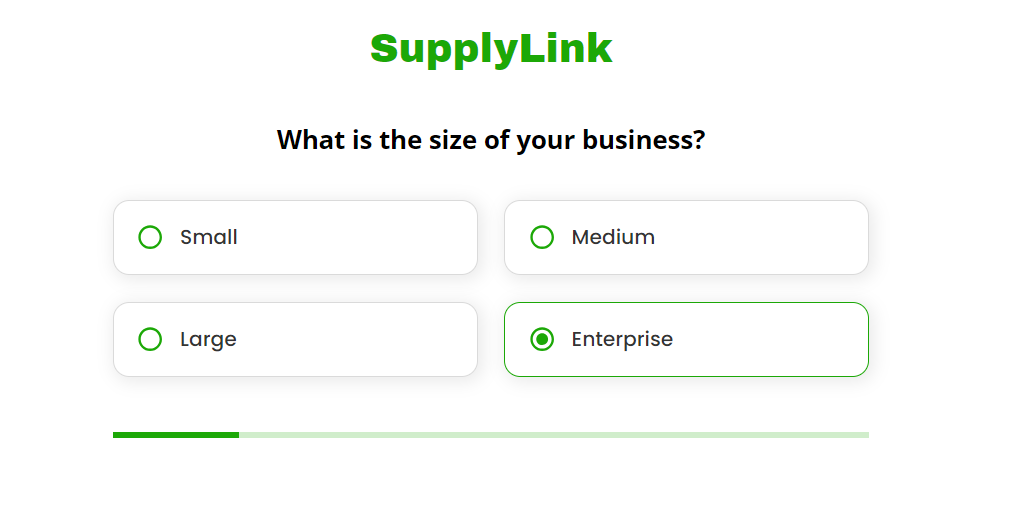
With a conditional logic form builder, you can open your form by asking users about the size of their business. Then, you can create “if…, then…” rules that display only questions relevant to that ICP. This streamlines UX and helps you get better leads and data.
Why Find a Form Builder With Conditional Logic?
Enhanced User Experience
Enhanced user experience (UX) is the biggest benefit of conditional logic forms. For starters, users are filling in fewer fields when only the relevant ones appear. This saves them time and leads to much less frustration with the process.
Plus, you can use conditional logic to personalize the form. And users who feel their answers matter tend to be more satisfied.
Increased Conversion Rates
As a knock-on benefit of the enhanced UX, conditional logic forms also tend to increase conversion rates.
While it’s a myth that decreasing form fields will always increase form conversions, it’s certainly true that decreasing irrelevant form fields will increase conversions. Conditional logic lets you create forms that ask the absolute minimum number of questions.
Higher Quality Leads
By asking targeted questions based on previous responses in your forms, you gather more precise and relevant information. You can also qualify your leads to ensure you end up with higher-quality leads that are easier to convert.
10 Best Form Builders With Conditional Logic
- Growform
- WP Forms
- Formidable Forms
- Jotform
- Zoho Forms
- Gravity Forms
- Typeform
- Cognito Forms
- Ninja Forms
- Formstack
1. Growform
Growform is a multistep form builder that makes it easy to create complex, branching forms that maximize conversions. All our plans offer conditional logic in the form of “if…, then…” rules that dynamically show or hide fields and steps based on user input.
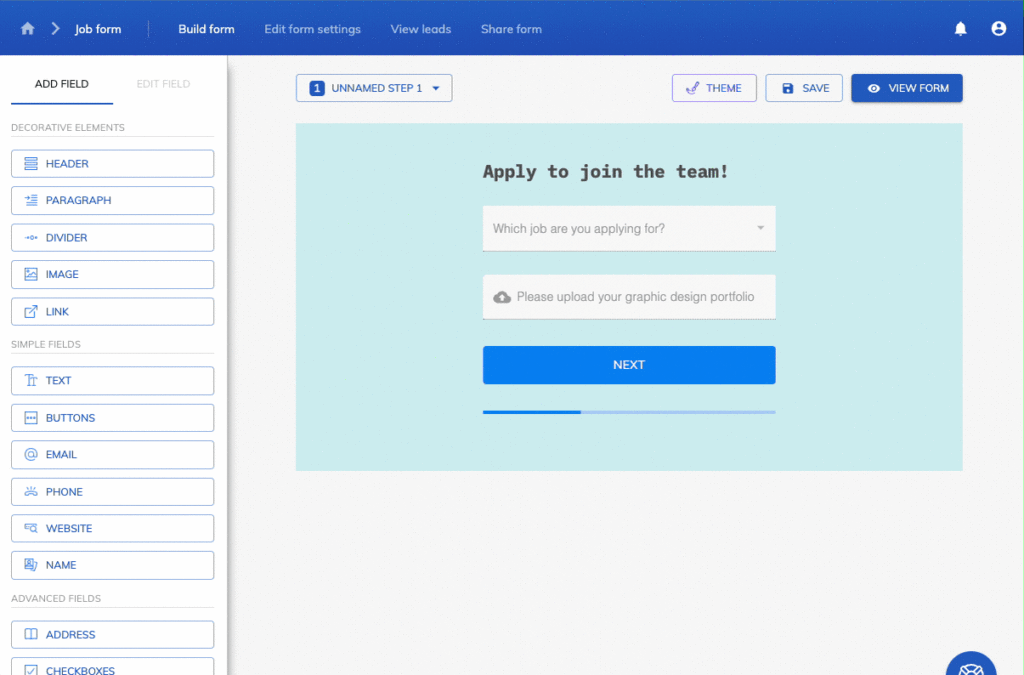
For example, say a lead selects “Marketing” from your industry dropdown. In that case, you set a conditional rule that displays a specific set of questions related to marketing rather than showing irrelevant questions about accounting or sales.
Growform is packed with features beyond conditional logic. Our builder is fully no-code, but we offer advanced customization, like custom CSS, if you feel like diving into code. You can also add images and videos and integrate with 300+ third-party tools and apps.
Key Features
- Conditional Logic: Show or hide form fields based on previous user inputs, creating more personalized and relevant forms.
- Multi-Step Forms: Control the flow of multi-step forms by showing or hiding entire steps based on user input.
- Easy Integration: Integrate with hundreds of databases, email marketing tools, and CRMs to simplify data management.
- Easy Embedding: Embed our forms using any of the three HTML embed methods for more reach.
- Branding: Tailor the look and feel of your forms with support for Google Fonts, custom CSS, and a range of no-code customization options.
- Phone & Email Validation: Automatically call the Twilio API to validate phone numbers and emails to prevent bad data from entering your database.
- Templates: Access more than 100 research-backed form templates spanning industries from solar to SaaS.
Pricing
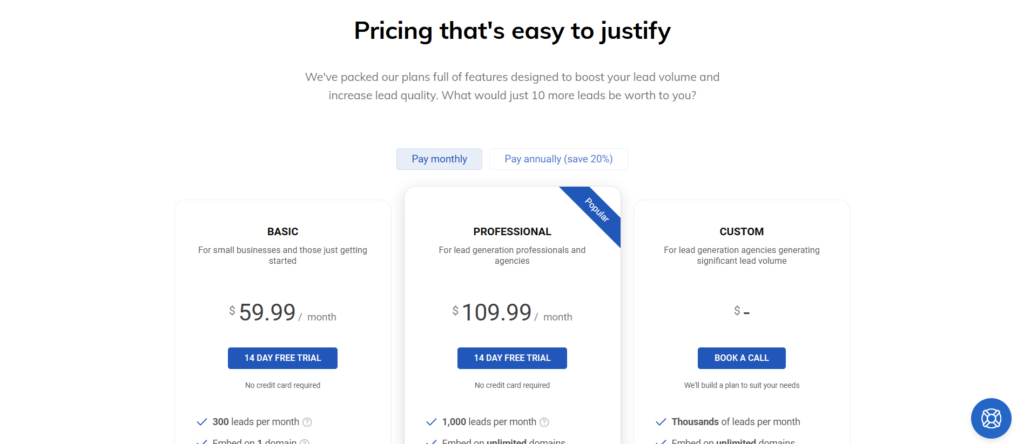
All our features are available to first-time customers over a 14-day trial period. After that, you can choose from three plans:
- Basic ($59.99/month): for small businesses
- Professional ($109.99/month): for agencies
- Custom (built to customer’s need): for agencies generating significant lead volume
Pros
- Simple interface for creating complex conditional logic without coding.
- Higher conversion rates from personalized and streamlined form experiences.
- Extensive flexibility and customization options with seamless integrations.
Cons
- Initial learning curve to fully understand all conditional logic capabilities.
- Time-consuming setup and testing for very complex forms with extensive conditional logic.
RELATED: How To Create Hubspot Multi-Step Forms (Without Code)
2. WP Forms
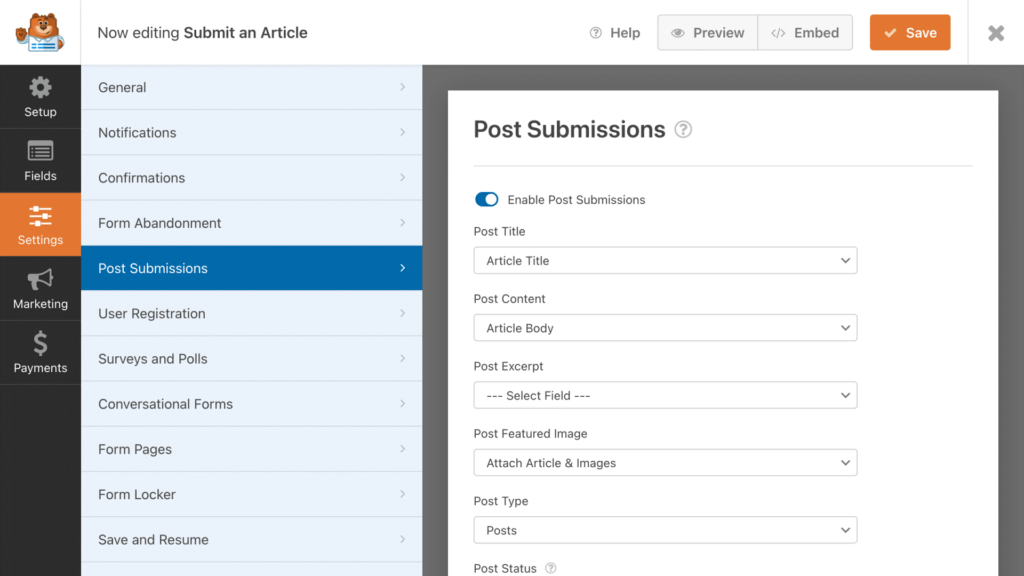
WPForms is a popular WordPress form builder known for its user-friendly drag-and-drop interface. It enables users to create various types of forms without any coding knowledge, making it ideal for creating engaging, dynamic, and conditional forms quickly.
Key Features
- Built for WordPress: WPForms is specifically designed and optimized for WordPress sites, so you can be sure it’ll integrate smoothly.
- Multi-Step Forms: Break down long forms into multiple steps to make them more manageable and improve completion rates.
- Customizable Notifications: Set up automated email notifications to inform admins or users when a form is submitted.
Pricing
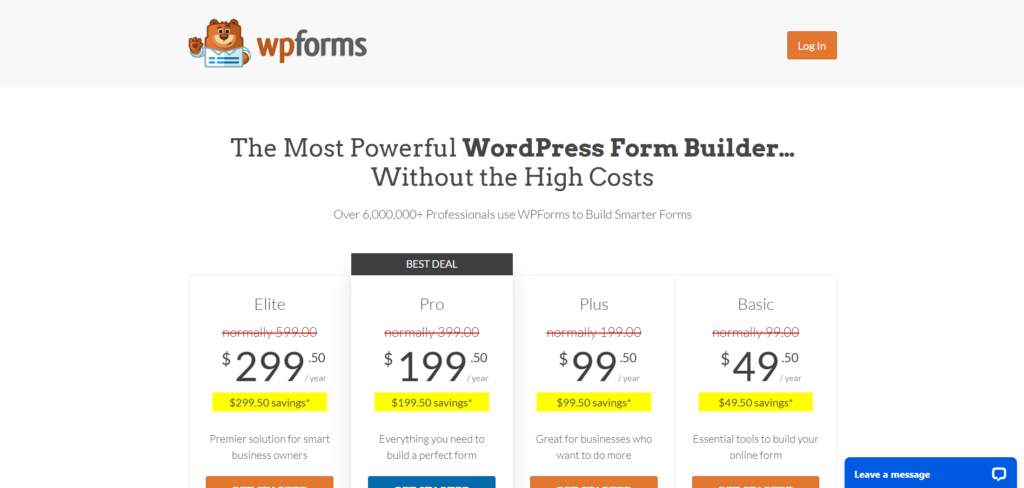
WPForms offers four pricing plans for different types of businesses. Prices range from $49.50/year to $299.50/year. It currently offers a money-back guarantee.
Pros
- Easy to use drag-and-drop interface.
- Extensive integrations with email marketing and CRM tools.
- Over 1,100 customizable form templates.
Cons
- Some advanced features are only available in higher-tier plans.
- Limited styling options without custom CSS.
3. Formidable Forms
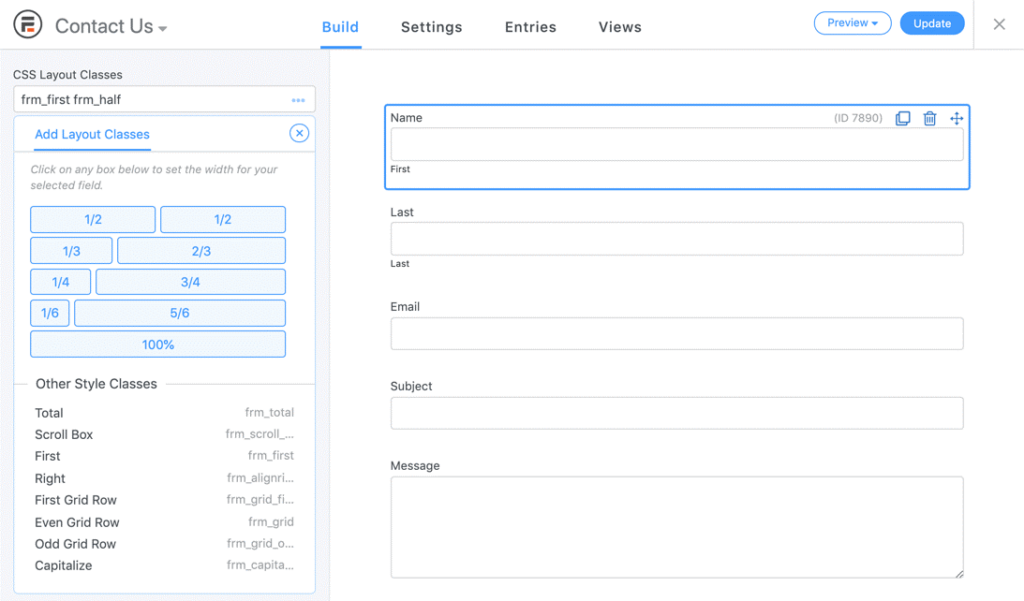
Formidable Forms is a powerful WordPress form builder designed to easily create complex, data-driven forms. It’s suitable for advanced users who need more than basic form functionality, offering features like conditional logic, calculations, and form templates.
Key Features
- Calculations: Perform real-time calculations within your forms, which is ideal for applications like cost estimators or financial forms.
- Drag-and-Drop Builder: Easily build forms using a drag-and-drop interface, allowing for rapid form creation and customization.
- Payments: Accept payments via Stripe and Paypal, and add custom WooCommerce fields to get the info you need.
Pricing
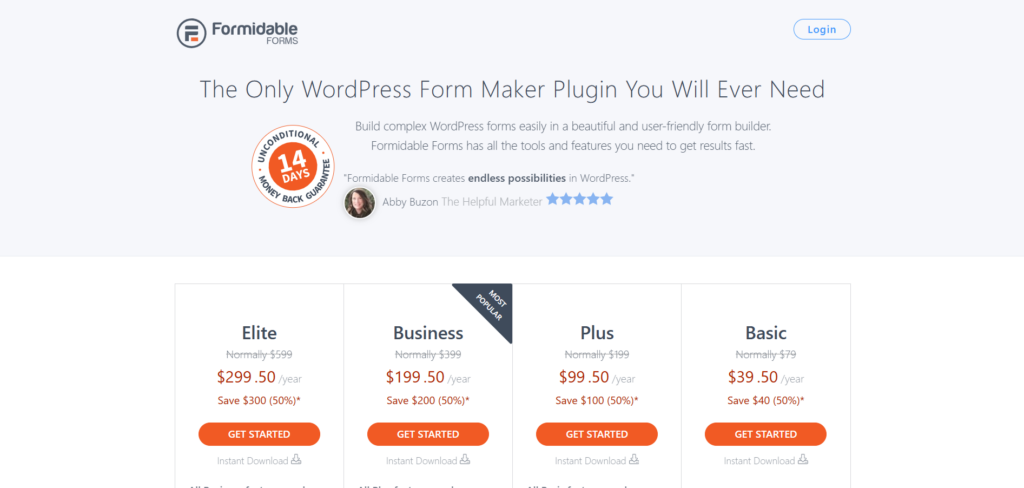
Formidable Forms offers several pricing tiers, starting at $39.50/year. The most comprehensive plan is $299.50/year. There is currently a 50% discount on all the available plans.
Pros
- Advanced features like calculations and conditional logic.
- Comprehensive form templates and customization options.
Cons
- Beginners may need time to understand how it works.
- Higher cost for advanced features.
4. Jotform
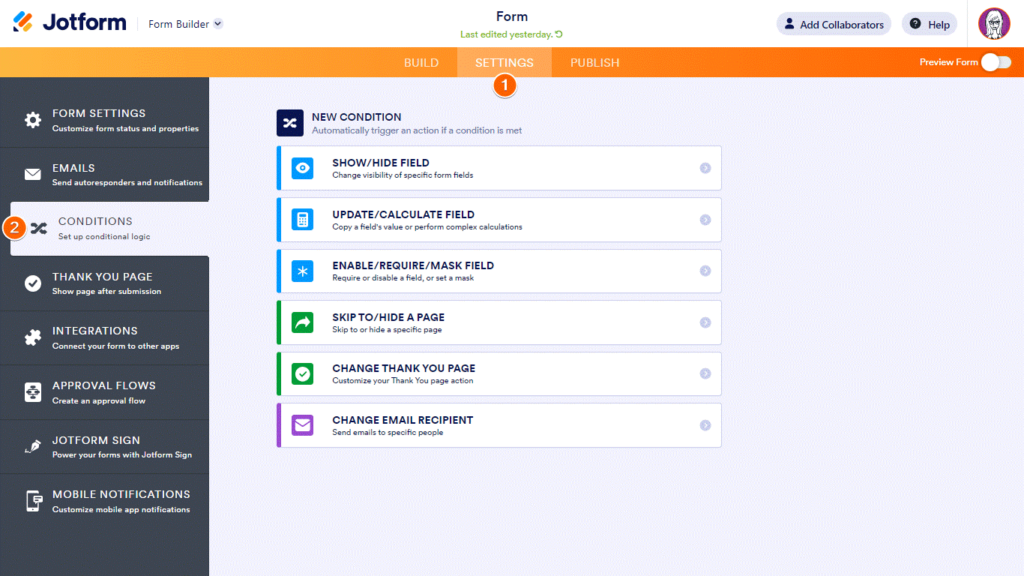
Jotform is an online form builder known for its ease of use and its absolutely massive template library. It supports a wide range of integrations and features (including conditional logic), making it a versatile choice for businesses.
Key Features
- Templates: Access a massive library of form templates that can be customized to fit various needs, saving time on form creation.
- Integrations: Connect forms with various third-party applications, such as CRM systems, email marketing tools, and payment processors, for seamless data management.
- Photo Fields: Collect photos directly through your forms for use cases like reporting maintenance issues.
Pricing
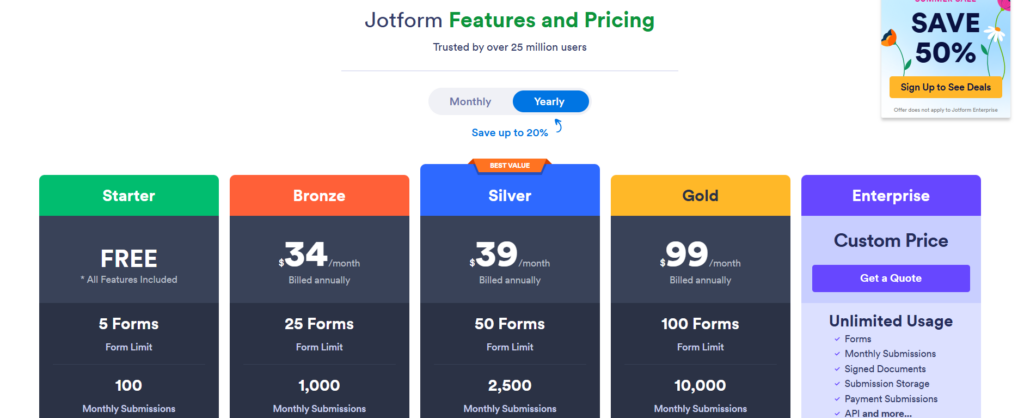
Users can choose from five different Jotform plans, including a free plan. The Gold plan costs $99/month and offers up to 100 forms monthly. You can also set up a custom Enterprise plan to meet high-volume needs.
Pros
- An extensive free tier with many features.
- Easy integration with a wide range of third-party tools.
Cons
- Limited submissions and storage on lower-tier plans.
- The interface can be overwhelming due to the number of options available.
5. Zoho Forms
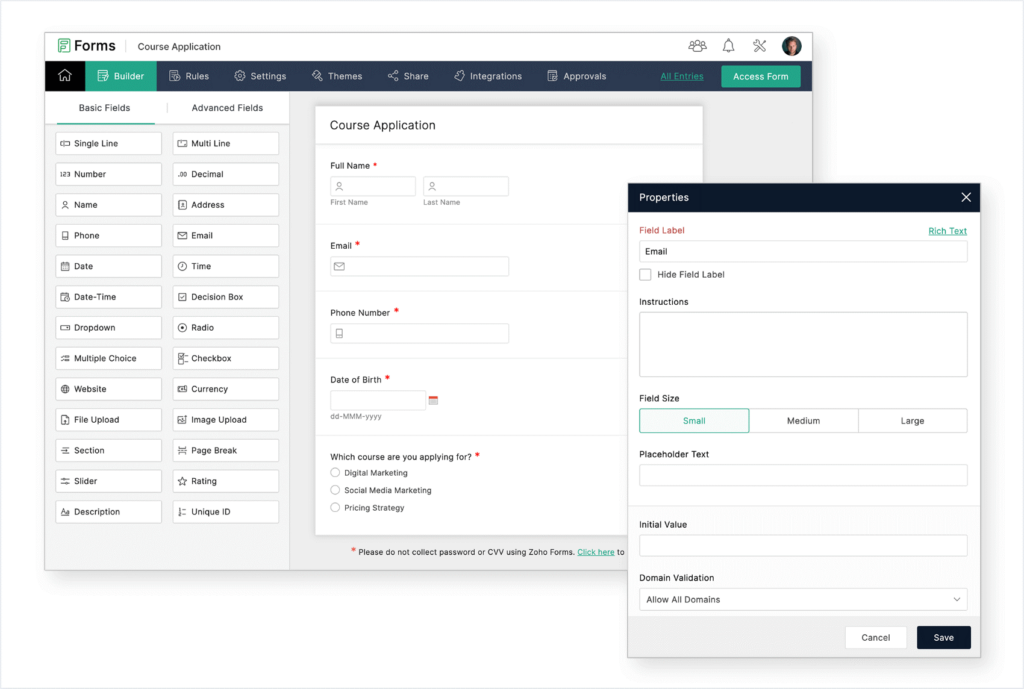
Zoho Forms is part of the Zoho product suite. The tool offers a form-building solution integrated with other Zoho applications like Sheets, CRM, Projects, and Desk. This option might be the most convenient if you’re already a Zoho user—or are considering a switch.
Key Features
- Form Analytics: Track form performance with detailed analytics, helping to improve form effectiveness over time.
- Integrated Ecosystem: Access an integrated ecosystem of business apps with deep 2-way connections.
- Analytics: Dive into your data with built-in reports, dashboards, and charts for all your form responses.
Pricing
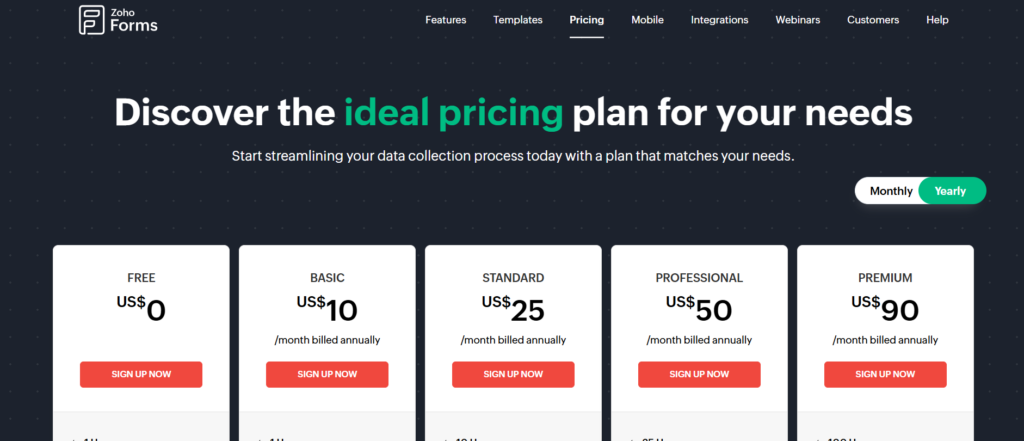
Besides the Free Plan, Zoho Forms provides other pricing plans, starting with the Basic Plan, which is $10/month. You can subscribe to different add-ons for paid plans to get extra submissions, storage, or PDF credits.
Pros
- Strong integration with other Zoho applications.
- Detailed analytics and reporting features.
- It’s the cheapest option on the list.
Cons
- The interface may be less intuitive for new users.
6. Gravity Forms
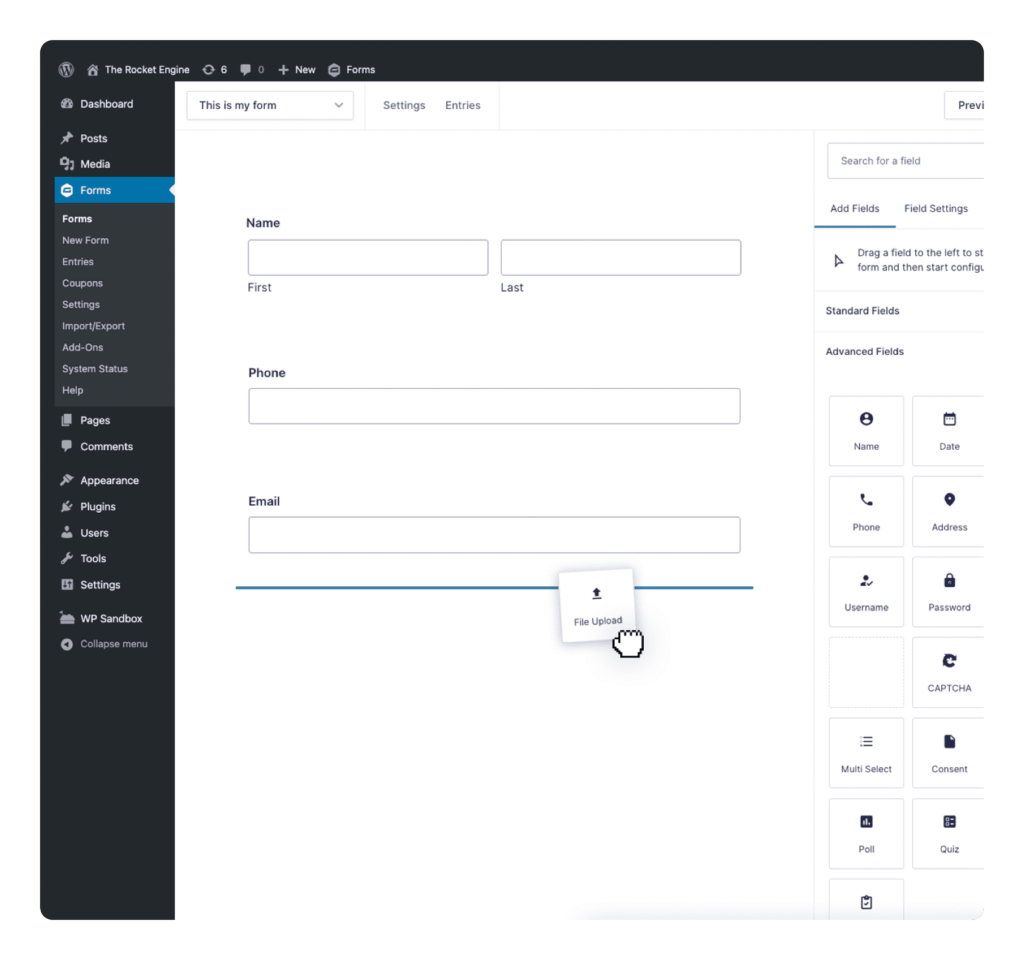
Gravity Forms is a WordPress plugin that allows users to create advanced forms without coding. It’s known for its flexibility and range of features, making it a top choice for businesses that use WordPress and seek forms with advanced capabilities.
Key Features
- Personalization: Dynamically fill in form fields, tooltips, and more with information pulled from user profiles.
- Advanced Integrations: Integrate with numerous third-party services, including email marketing, CRM, and payment gateways.
- Developer Friendly: Offers extensive customization options through add-ons and custom coding capabilities.
Pricing
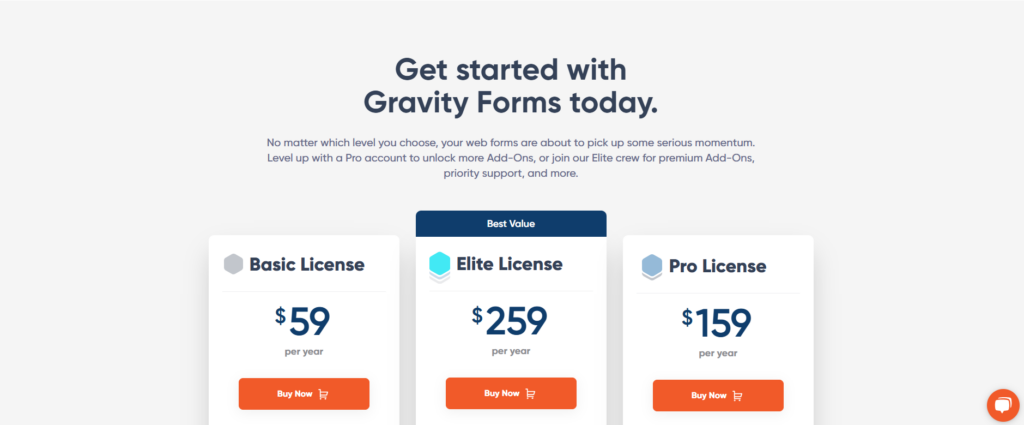
Gravity Forms offers three main pricing plans. The Basic Plan, the cheapest, costs $59/year, while the Elite Plan, the most expensive, costs $259/year.
Pros
- Highly customizable with numerous add-ons.
- Excellent support and documentation.
Cons
- Higher cost for premium features.
- Requires WordPress, limiting its use to WordPress websites.
7. Typeform
Typeform is an intuitive form builder designed for engaging, personalized data collection. Its conditional logic capabilities allow users to create interactive, dynamic forms that adapt to respondents’ answers, improving user experience and completion rates.
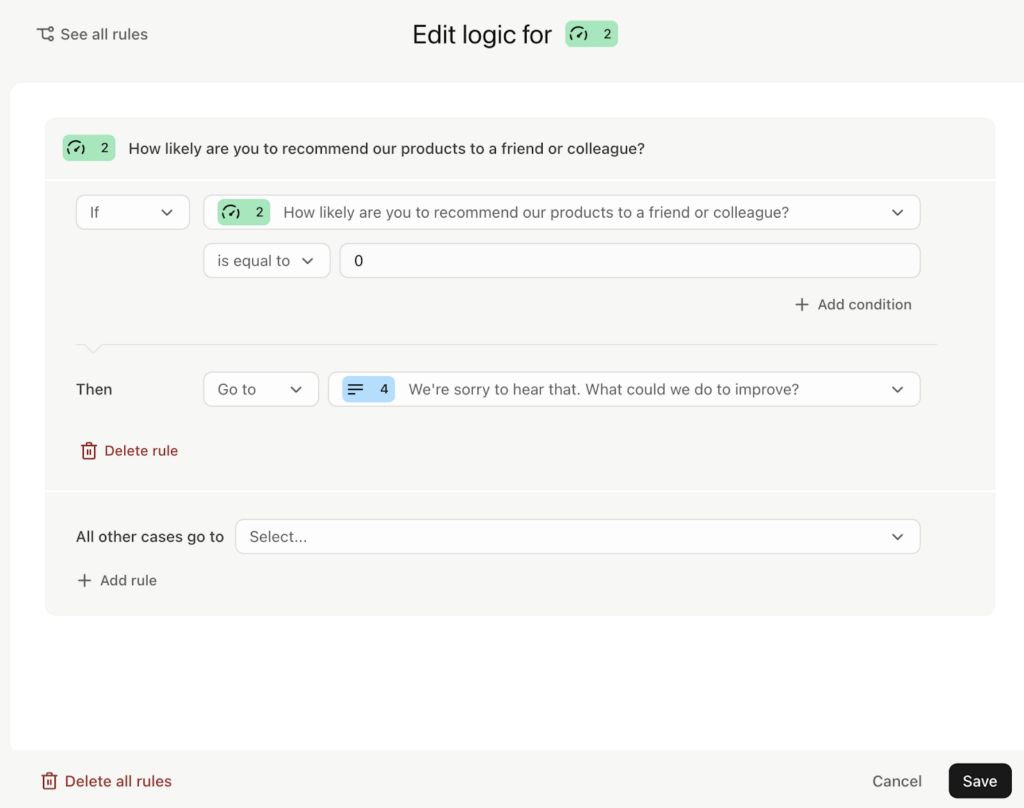
Key Features
- Logic Map Visualization: Easily create and modify conditional paths using an interactive logic map.
- Branching & Calculations: Show relevant follow-up questions based on responses, ensuring a personalized experience.
- Customizable Design: Add branding elements like logos, colors, and styles for seamless integration.
- Integrated Automation: Score leads, schedule meetings, and trigger automated follow-ups directly within the form.
- Extensive Integrations: Connect with essential apps to streamline workflows and data collection.
Pricing
- Free: Very limited. Just to get a taste of the features.
- Basic: $29/month, includes 100 responses per month and one user seat.
- Plus: $59/month, offers 1,000 responses per month, three user seats, removal of Typeform branding, and a custom subdomain.
- Business: $99/month, provides 10,000 responses per month, five user seats, advanced features like drop-off rates analysis, conversion tracking, and priority support.
Pros
- Intuitive Logic Map for visualizing and modifying conditional flows easily
- Advanced Branching & Calculations to create highly personalized form experiences
- Seamless Multi-Question Logic ensures respondents see only relevant questions
- Automated Follow-Ups & Scoring enhance lead nurturing and engagement
- Strong Integrations with CRM, email, and automation tools for streamlined workflows
Cons
- Logic Features Not Available on Mobile Builder, requiring desktop use for setup
- Limited Direct Editing in Logic Map, needing manual adjustments in some cases
- Some users report that the platform does not save progress if a respondent exits before completing a form
8. Cognito Forms
Cognito Forms is a powerful no-code form builder that excels in conditional logic, allowing users to create dynamic and responsive forms. With its intuitive logic builder, users can automate workflows, customize form behavior based on responses, and streamline data collection while maintaining flexibility and efficiency.
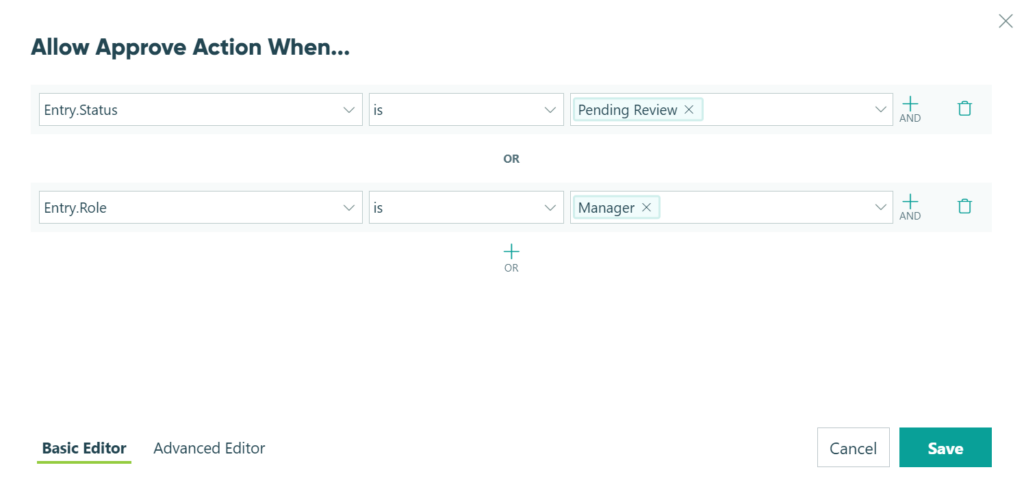
Key Features
- Show/Hide Fields & Sections: Display only relevant fields based on user responses.
- Conditional Page Branching: Guide users through personalized multi-page form experiences.
- Automated Email Routing: Send notifications and confirmations based on user selections.
- Conditional Payment Requirements: Enable payment only under specific conditions.
- Role-Based Field Visibility: Control access to form sections based on user roles.
Pricing
- Free: for 1 user, 500 entries/month, and 100MB storage.
- Pro: $19/month for 2 users, 2,000 entries/month, and 1 GB storage.
- Team: $39/month for 5 users, 10,000 entries/month, and 10 GB storage.
- Enterprise: $129/month for 20 users, unlimited entries, and 100 GB storage.
Additional users can be added for $5 per user per month.
Pros
- Easily show/hide fields, sections, and pages based on user responses
- Trigger actions, assign statuses, and control email routing dynamically
- Allow users to pay now or later based on their selections
- Display specific fields or sections based on user roles
- Set custom error messages and field requirements using conditional logic
Cons
- Advanced logic options require time to master
- Extensive logic rules may impact form performance
- Access management can be confusing, making it difficult to locate and share specific forms
9. Ninja Forms
Ninja Forms is a powerful WordPress form builder designed for flexibility and ease of use. With its Conditional Logic add-on, users can create dynamic forms that adapt in real time based on user input, enhancing engagement and efficiency.
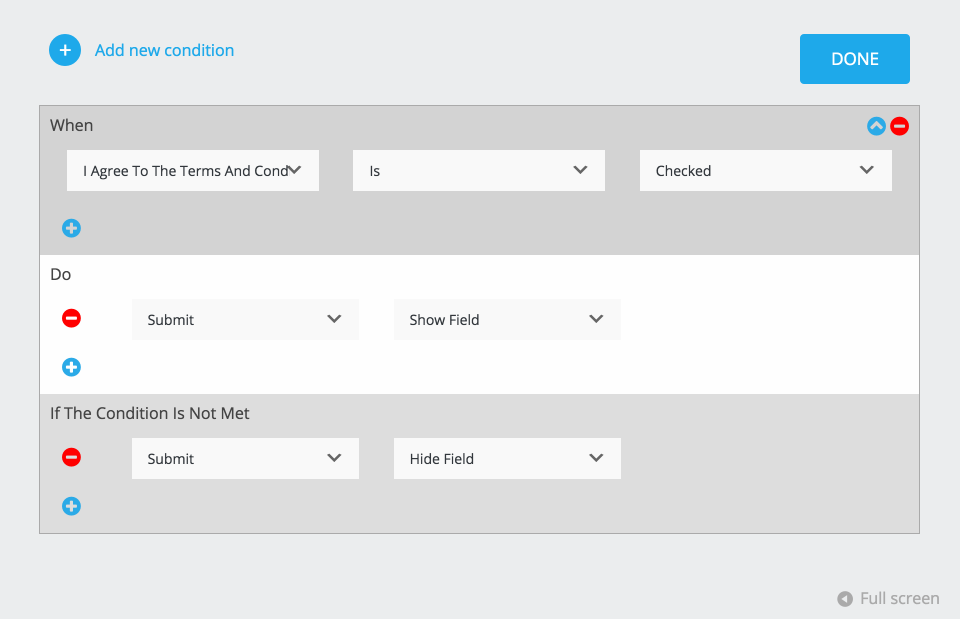
Key Features
- Show/Hide Fields Dynamically: Display or remove fields based on user selections.
- Modify Field Values Automatically: Adjust values (e.g., discounts) based on conditions.
- Conditional List Options: Add/remove choices in dropdowns or checkboxes dynamically.
- Action-Based Logic: Control form actions like email notifications based on user responses.
- Date/Time-Based Conditions: Trigger form behavior depending on selected dates.
Pricing
- Free: Can be used on unlimited sites. Includes core form features
- Plus: $59.40/year – Suitable for up to 3 sites, includes advanced features like File Uploads, Conditional Logic, Layout & Styles, Multi-Step Forms, and PayPal integration.
- Pro: $119.40/year – Supports up to 20 sites, includes advanced datepicker, ability to save progress & user management
- Elite: $299.40/year – Ideal for unlimited sites, includes all features and integrations, along with priority support and early access to new add-ons.
Pros
- Show or hide fields in real time based on user input
- Automatically change field values (e.g., discounts) using conditional logic
- Add or remove choices in dropdowns and checkboxes dynamically
- Control email notifications, redirects, and submissions based on responses
- Trigger actions and field visibility using specific date conditions
Cons
- Conditional logic is not included in the free version
- Setting up complex logic requires some trial and error
- Lacks precise time comparisons for scheduling actions
10. Formstack
Formstack enables users to create dynamic, personalized forms that improve user experience and streamline workflows. Its intuitive, no-code platform integrates seamlessly with other tools to automate processes, reduce IT dependency, and transform data into actionable insights.
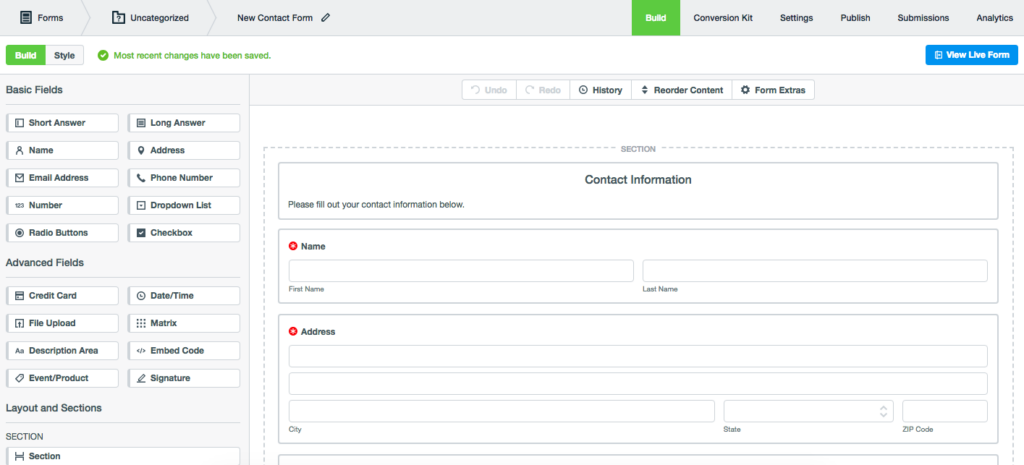
Key Features
- Automatic Field Visibility: Show or hide fields based on user input.
- Personalized User Experience: Skip irrelevant questions to reduce form length.
- Easy Setup: Conditional logic is simple to implement with a no-code builder.
- Section-Level Logic: Apply logic to entire sections for more complex forms.
Pricing
- Forms Plan: Starts at $83/month (billed annually) for 1 user, including 25 forms and 1,000 submissions per form.
- Suite Plan: Begins at $250/month (billed annually) for 5 users, including 100 forms and 10,000 submissions per form.
Pros
- Easily create personalized forms with conditional logic to enhance user experience
- Automates form flow by showing or hiding fields based on previous responses
- Simple no-code builder that allows quick setup of complex conditional rules
- Supports logic at the section level, streamlining longer forms with multiple sections
Cons
- Logic may malfunction if form updates aren’t reviewed, causing display issues
- Limited to certain field types for conditional logic (e.g., dropdown, radio buttons)
- Requires attention to detail to avoid conflicts when adding or removing logic rules
Form Building Just Got Better with Growform
This guide explored seven form builders that use conditional logic to enhance data collection and user engagement. While each tool has unique strengths, the key is finding the solution that best aligns with your needs and goals.
At Growform, we’ve taken from building to the next level. Our platform specializes in conversion-oriented lead capture forms that combine advanced conditional logic with unparalleled user-friendliness.
Ready to transform your lead generation process? Experience the Growform difference with our 14-day free trial.
Related: Logic Jump: Create Dynamic Forms for Better User Engagement
Recent Posts
- Your Guide to Using Webflow Form Builder Effectively
- Top 5 Lead Capture Form Examples That Can Boost Your Conversions (2025)
- What Is an Elementor Multi-Step Form & How Does Growform Improve It?
- We Review The Best Microsoft Forms Alternatives for Better Customization and Control
- Here’s Our Review of the Best Form Builders For WordPress Sites
